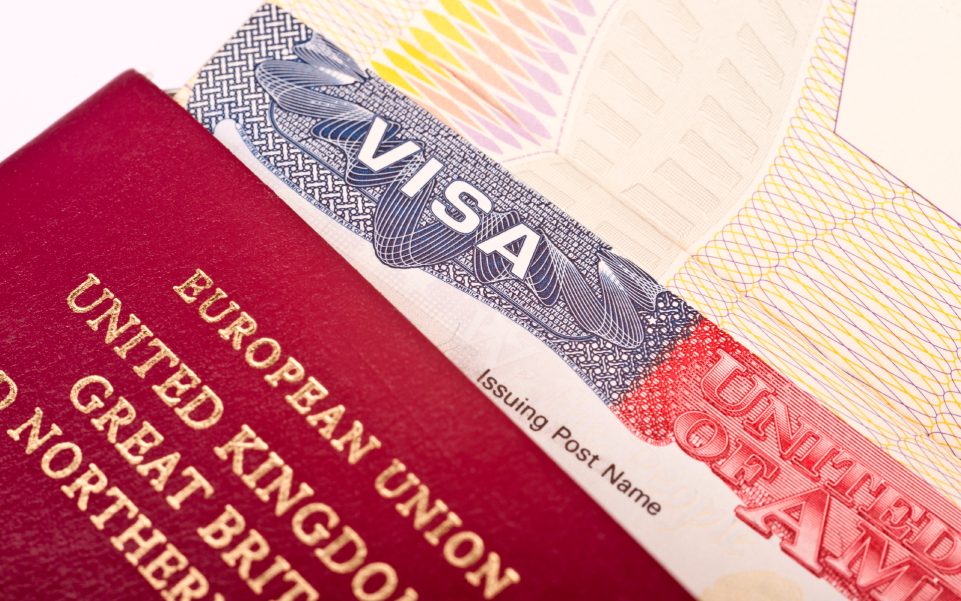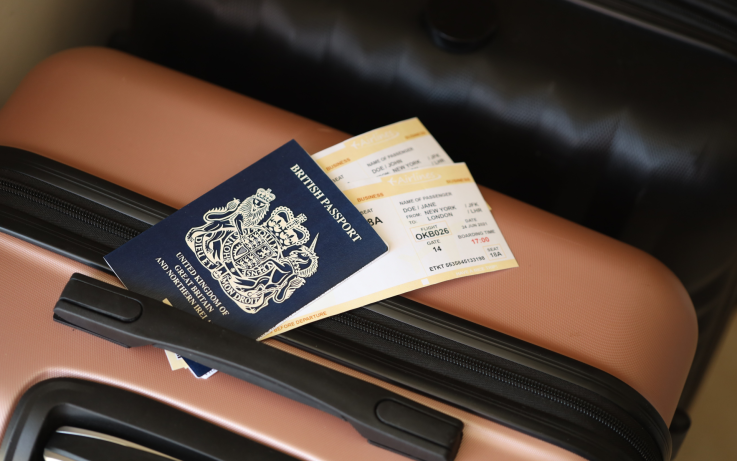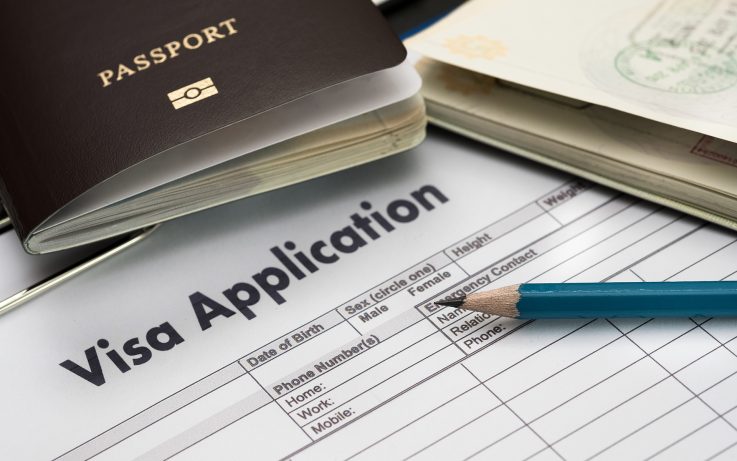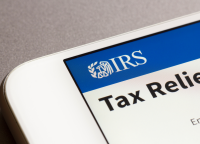British visa refusal: reasons and options for resolving the problem

The UK Home Office (Home Office) often makes negative judgements on visa requests. This is due to the fact that visa officers follow the law closely, and also because there are no indulgences for those wishing to visit the country. The United Kingdom is really concerned about the situation inside the country and for maintaining the leading positions in terms of safety of citizens, economic indicators and comfort level of living. That is why each applicant’s questionnaire is thoroughly analysed for discrepancies in information, proof of the information provided, etc. Visa officers need to make sure that the person is travelling to the country with the purpose, which is shown in the application, can fully pay for travel and accommodation, as well as that the duration of his stay in the territory of the Foggy Albion will not exceed the limits allowed by the visa. The slightest doubt in any of the points instantly leads to a refusal. However, such a letter is not a reason to despair: in most cases there are options to achieve a favourable decision in the end.
First actions after receiving a rejection
The most important thing to do is to retain the letter from Home Office notifying you of the denial. It contains important information:
- a description of the reason for the negative decision;
- the date of the judgement – this is the same as the date the letter was sent, as this is when the time limit for lodging an objection starts.
In the official refusal letter, the British embassy officials indicate the reason for the negative decision, in some cases there may be several reasons, and also indicate what action you are entitled to – to a review or appeal. In the absence of these options, there is only one thing left to do – to submit a new application.
It is important not to lose this information and provide it to the immigration lawyer with whom you will work on further actions.
Do not try to solve the problem yourself: once already received a refusal, a kind of indicator of the need for qualified assistance – whether it is worth trying to go round the rake again alone. At the very least, each rejection is a loss of money paid as an application fee, as well as postponement of travel dates, because any of the ways to solve the problem takes time, sometimes taking more than 9 months.
When should I not expect a favourable review of my visa application?
The visa officer can give a negative verdict in either of two ways:
- refusal to issue a visa;
- a ban on entry to the UK for 10 years.
In the first case, with the help of experienced immigration lawyers, it is often possible to obtain entry clearance.
The second option is issued for particularly serious offences and really will not allow a person to visit the UK for a long time, unless the client can prove that the visa officer made a mistake, which also happens.
It is worth considering what misdemeanours can result in a total ban on entry for a decade:
- Providing knowingly false information in a visa application about oneself, the purpose of the trip, the financial state of affairs, etc. – visa officers will not find it difficult to verify the information, and an attempt to deceive will characterise the applicant as highly unreliable;
- endorsement of terrorism. For a refusal on this occasion, it is enough to be a member of any community, which in the UK is considered to be an accomplice of terrorists. It is also possible to publish at least one post on social networks, which contains a positive reaction to an extremist act or praising the merits of a certain anti-person – and the entry ban in your pocket;
- the presence in the biography of crimes and offences. This includes not only criminal convictions, but also any administrative involvement, and even significant traffic offences can be taken into account. It is better to stay out of the sight of the custodians of order – so the chances of getting a visa are much better;
- previous refusals to visit any country, not necessarily just the UK. These incidents will cause the Home Office to take a closer look at the application, but the most serious offence, guaranteed to lead to a full entry ban, will be an attempt to conceal these background facts.
These four typical situations lead to a total restriction of entry to the UK for 10 years. However, such measures are not often resorted to by visa officers. A large proportion of refusals fall into other categories and are subject to review with the possibility of a favourable response.
Typical reasons for refusal of a British visa
The reason for issuing a negative decision at the visa officer may be unique, but all verdicts can be conditionally divided into several categories:
- mistake in the choice of visa category. Often people who try to choose the right visa for themselves are mistaken. For example, if you apply to travel agencies with a request for assistance in applying for a work visa, it is highly likely that they will specify a tourist visa in the application – such an error becomes immediately obvious to the representatives of the Ministry of Interior and makes them turn the application around;
- insufficient confirmation of the declared information. In the modern world, people have long ago no longer take your word for it: every thesis requires an argument. Therefore, any fact from the visa application form should be proved by providing supporting documentation. This can be bank statements, birth certificates of the applicant and relatives, certificates from work and much more. It is important that these documents are correctly drawn up and submitted to the UK authorities in a timely manner. In controversial cases, it is worth contacting a competent visa lawyer, as they will tell you what kind of document should be prepared and what information in principle should be entered into the papers;
- withholding information about relatives living in the UK. This is an important enough point, especially if it is planned to visit them;
- contradiction of any points of the visa application;
- specifying the period of intended stay in the country higher than allowed by the chosen visa category;
- questions about the financial security of the applicant, and in two ways. Firstly, the person staying in the UK must have enough money to pay all the bills on his/her own and not to ask for help from the state. Secondly, if the level of income of a person is low, and the bank statement reflects a disproportionately large amount, this circumstance also alarms visa officers;
- Insufficient funding from the sponsor. If it is any of the visa categories for which a sponsorship certificate is required, the sponsor’s accounts are also subject to scrutiny.
Options when a UK visa is refused
A person who has been refused a UK visa has the following options:
- ask for a review of the decision;
- lodge an appeal;
- make a new visa application.
However, the chosen visa category itself may impose some restrictions on the options for action in the event of refusal. It is worth clarifying this feature with an immigration lawyer. He will be able to understand each individual case and begin to act in the direction where it is most likely to get a positive answer faster.
Reconsideration of a negative decision on the visa
This way of solving the problem is fair for those situations when the applicant has collected the right package of documents, there is confidence in the absence of errors and the full availability of supporting documentation. In short, if the refusal occurred due to the fault of the visa officer, who clearly did not take into account some document. Everyone is human – everyone can make mistakes. You can ask for a review of the package of documents within 2 weeks, if the visa is applied for by an applicant located in the territory of the United Kingdom. And 28 days to submit a petition is given to the one who sends documents from another country.
It is important that this way does not imply the addition of previously submitted documents. If the reason for the refusal requires the submission of another certificate, then it makes no sense to apply for a review.
Appeal
An appeal is appropriate when the visa officer has obviously made a mistake and violated the applicant’s rights. Only a competent immigration law specialist can assess the likelihood of success of such a process . It is necessary to have a perfect understanding of the UK legislation, international human rights, know all the current declarations, etc.
This way of solving the problem also has its own terms:
- 2 weeks are given to register an appeal for those who are currently in the UK;
- 28 days for those living in another country.
Immigration lawyer fills out a special form, prepares for the upcoming court and represents the interests of his client there. It is highly desirable to contact specialists, as only a rich experience of solving such problems gives good reason to hope for a positive outcome. Otherwise, you can lose not only peace of mind, but also a significant amount of time and money.
In some cases, immigration lawyers consider it possible, in addition to sending evidentiary documentation to the immigration tribunal, to send papers directly to visa officers – such a step sometimes brings success before the court gets to the consideration of the case.
With regard to the timeframe for amending a decision to refuse a visa through the immigration tribunal, it should be borne in mind that this is an extremely long process and often drags on for longer than 9 months.
New visa application
The simplest and most commonly used option to resolve the problem is to make a new UK visa application. However, it is only valid if the error was really on the applicant’s side. It is enough to correct the information on the correct ones, supplement the papers with the missing certificate – and you can count on a positive outcome.
But it should be borne in mind that the state fee for consideration of the application by visa officers will have to be paid again: in case of refusal the money is not returned. Only the medical insurance fee, which is also paid when the documents are drawn up, is refundable in the event of a visa refusal.
Refusal of a UK visa is not a judgement call
It is important to remember that there is a solution to every situation. Home Office refusal is not a reason to forget about the visa forever. A competent lawyer will always be able to help sort out the situation and find the best way to solve the problem. The main thing is not to despair and to contact a specialist as quickly as possible, because there is not much time to respond. In most cases it is possible in the shortest possible time to achieve positive solutions.
FAQs about visa refusal
How much money do I need to have to get a British tourist visa?
The amount of money required to be deposited in bank accounts is stipulated in the conditions of each visa category. However, even if finances are available, a number of circumstances may still confuse the Home Office representative:
- low level of income in the home country;
- employment more than six months before the visa is granted.
How do I attend an appeal tribunal if my visa application is refused?
When it comes to the Immigration Tribunal, the applicant is only expected to attend the courtroom if they are in the UK. When submitting documents from another country, it is not necessary to come to the meeting – all interests can be represented by an immigration lawyer.
What is the algorithm of actions in case of refusal to obtain a British visa?
An applicant for a visa to the UK when receiving a refusal should contact an immigration lawyer. This will help save money, time and nerves. After all, one time has already received a negative answer, whether it is worth risking a second time, especially since previous refusals become not the best history in the applicant’s case.
Immigration lawyer goes the following way:
- scrutinises the refusal letter. It is important the date of its sending (regulates the term for response) and the content of the reason for the refusal;
- if there are any inaccuracies in the actions of the visa officer, sends a request for reconsideration of the application;
- if the applicant has indeed made mistakes in completing the documents or there is a lack of evidence, the errors are corrected and the visa application is resubmitted;
- where there is reason to believe that there are human rights violations by the Home Office, an appeal is prepared and the case is then heard at an immigration tribunal;
- if the applicant fails to meet the requirements, you can expect a detailed analysis of the situation and appropriate advice on what to do to get approval next time.







